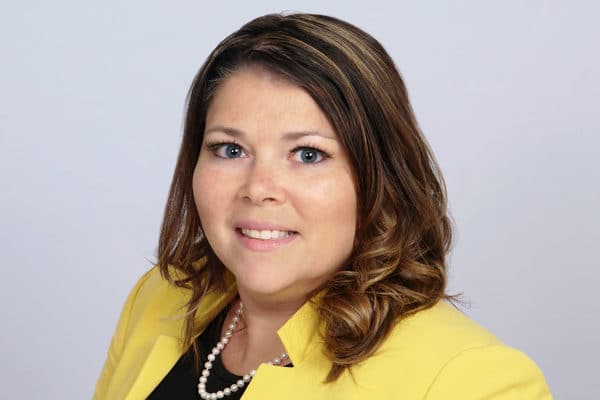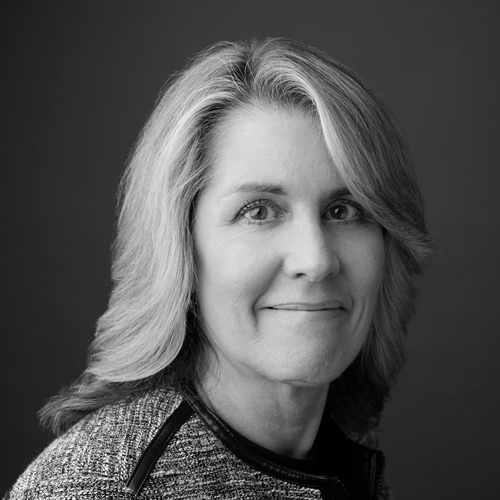Upon talking to Jennifer Stula Rivera, it’s immediately clear why giving back isn’t a simple notion for her. Growing up in a working-class family, and being the first in her family to graduate from a four-year college, a strong work ethic, and the importance of paying it forward was ingrained in Rivera.
Years later, and having earned an advanced degree in education and counseling, Rivera wanted to work with a population of students who could benefit most from quality teachers and role models. Her teaching career began at a residential juvenile facility for adolescent males, all of whom were suffering from substance abuse addiction and mental health issues.

“It certainly was not without its challenges, but it was an extremely rewarding position,” Rivera recalls. “I learned so much from the experience—probably more than the students did—about the way in which you respect people and the value of diversity and inclusion. If you are that genuine in life and in everything that you do, then it generally has positive attributes.”
Rivera, who was recently named one of the CSR Responsible 100 by City & State New York magazine, finds that notion of valuing diverse opinions is reflected throughout the culture of Moody’s—a global provider of credit ratings, research, tools, and analysis that contribute to transparent and integrated financial markets—where Rivera serves today as vice president of corporate social responsibility. In April 2018, Moody’s announced its new corporate social responsibility (CSR) strategy, which empowers people around the world to have a better future. Across all of these areas, Moody’s values of diversity and inclusion serve as a lens through which to evaluate its CSR efforts and investments.
“Our new approach to CSR ties to everything Moody’s does as a company, from our business initiatives and products to our internal sustainability programs,” Rivera says. “It encompasses much more than philanthropy and employee engagement activities. As we expand globally, we will be more intentional about our societal engagement to create pathways for people around the world to have a better future. Our new, comprehensive approach to CSR creates a closer bond between the business and our CSR efforts. It will help Moody’s drive longer-term impact on our business and in the larger world.”
Moody’s CSR team, under the direction of Arlene Isaacs-Lowe, global head of CSR, spent most of 2017 developing the strategy with major stakeholders worldwide including employees, partners, and more to develop a strategy that encompassed the entire company with three key focus areas.
1. Empower People with Financial Knowledge
Many entrepreneurs around the world struggle to gain basic financial management skills or qualify for loans to help grow their businesses. As a result, Moody’s launched Reshape Tomorrow, a global initiative that aims to promote greater financial inclusion by bringing more small business owners—especially women and members of untapped groups in developing markets—looking to grow their enterprises vital access to credit information as well as training to build essential business skills.
“Before an entrepreneur or small business owner can even get the funding they need, they have to acquire the tools and know-how to navigate the financial world,” Rivera says. “Understanding that through the lens of credit is really where Moody’s expertise lies and is authentically where we can add value through our people, products, and services.”
For instance, in the United States, small businesses create more than 60 percent of new jobs, but they struggle to access credit for loans. In China, small businesses generate about 60 percent of the GDP, but 66 percent of those businesses lack access to financing, Rivera says. It’s a pattern that happens around the globe.
“Women-owned small businesses generate significant value, but they face tremendous barriers,” Rivera explains. “We’ll be working with partners around the world to empower promising men and women who want to grow their enterprises. We’ve activated this strategy just over the last couple of months, and it’s one of the things that I think is very exciting and really aligns to Moody’s core competencies and our culture of collaboration and inclusion.”
2. Activating an Environmentally Sustainable Future
As Rivera explains, the environment is a newer area of the focus for CSR activity, but focusing on the environment is not new to Moody’s. In fact, Moody’s Investors Service has been incorporating environmental, social and governance (ESG) considerations into its credit analysis for years.
“Our work gives investors the information they need to invest in environmentally beneficial projects,” says Rivera, who is also a cofounder for both the Environmental Task Force as well as the Generational Employee Resource Group. “By providing transparent, consistent, and standardized approaches, we’re helping to power decisions on investments and projects that contribute to a more sustainable future.”
By enhancing the way that Moody’s incorporates ESG into its credit analysis, it helps issuers understand the impact that these factors have on their business and credit quality.
A focus on the environment, as well as working for a purpose-driven company, is especially appealing for incoming talent, particularly millennials. Nearly 70 percent of millennials surveyed said they wanted to make a positive difference in the world, and 81 percent said a business needs to have a genuine purpose, according to a recent survey by American Express.
“It’s important for companies to continue to understand, appreciate, and meet the specific needs of the different generations,” Rivera says. “It better positions companies to attract, recruit, and retain the most talented employees and adds to their competitive advantage.”
As younger generations further enter the workforce, Moody’s has become a destination for Generation X and millennials. Rivera, who has been with Moody’s for more than ten years, says it’s the company’s culture and inclusive environment that also lend to providing that indispensable workplace.
“It’s been a tremendous journey,” Rivera says. “The company has provided me with so many fantastic opportunities and truly values the contributions and opinions of all its employees validating our employee value proposition ‘we have impact, so will you.’ I have seen that firsthand over the years within a culture that is extremely collaborative and progressive. I’m a vice president in arguably one of the most exciting fields in financial services, but I’m also the breadwinner and have the privilege of working for a company that values flexible working arrangements. For me, being able to care for a young family at home while holding an incredibly rewarding and important position for an organization that has been recognized in Working Mother magazine’s 100 Best Companies list for the last two years makes me incredibly proud and fuels my ambition and loyalty to an amazing brand.”
3. Help Young People Reach Their Potential
One of the CSR focus areas that Rivera is most passionate about, given her background in education, is helping young people reach their potential by opening greater opportunities for untapped students and young adults ages fifteen to twenty-four to prepare for successful careers in technology, economics and finance—as well as developing a diverse and inclusive talent pipeline.
Today’s students and young adults will drive the next wave of advances that shape our society, yet many young people struggle with economic and cultural barriers, a lack of professional role models, and other challenges that hold them back, Rivera says. Moody’s believes that by sharing its expertise, the company can help young people from untapped communities build brighter futures.
Moody’s employees mentor students of all ages and a range of backgrounds to support their early-career talent and professional development. For example, Moody’s partners with Girls Inc. of New York City, on the Moody’s Generation Giga Girls (G3) Data Analytics elective course, which teaches high-school girls about data analytics and critical thinking.
“With these programs, we want to build a fairer and more just society,” Rivera says. “This is building social fabric and belonging for people who live in the community. It’s also lending to diversify the workforce in five, ten years, when these girls go on to college and aspire to study technology. We know that there is a gap for women in tech careers, and Moody’s is committed to helping close that gap.”
Having served as a teacher, Rivera knew she could add value to developing this program, and she currently sits on the program’s curriculum development advisory council. “The first year when we piloted this program, we learned a lot about what worked and didn’t work. It was important to have people in the classroom as well as the mentors and volunteers who the girls could relate to,” she says. “We digitized the curriculum and worked with the girls to model avatars after them. We made some adjustments in year two to make sure the teacher who came into that classroom looked like the girls and could relate to the girls. Those were huge differentials. It was amazing the difference that it made, and I’m so proud to have been able to bring that to light for the organization.”
Heading into the implementation phase with the new CSR strategy, Rivera says it’s an exciting time for Moody’s. From an investment standpoint, she and her team recently closed on a request for proposal for the signature initiative Reshape Tomorrow.
“The CSR team is scouring through proposals submitted from all over the globe,” she says. “But we are looking for so much more than simply offering funding. We are looking for partners who will leverage the time and talent of our people as well as our products and services to work together to open the door to a better future. It’s going to be an exciting path ahead.”
Photo: Danielle Madeux

